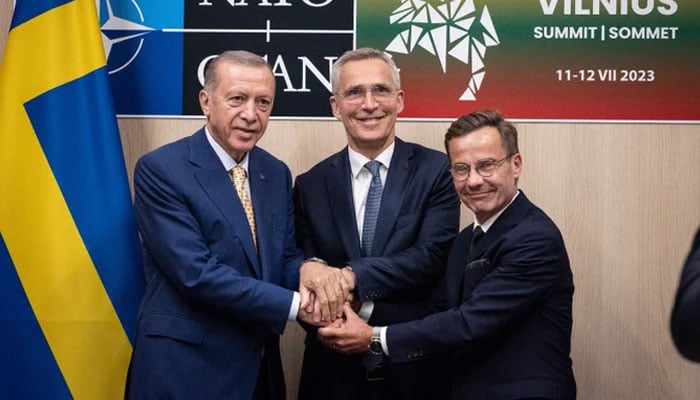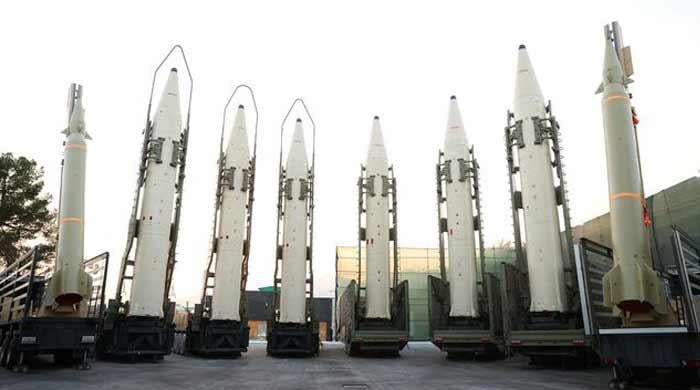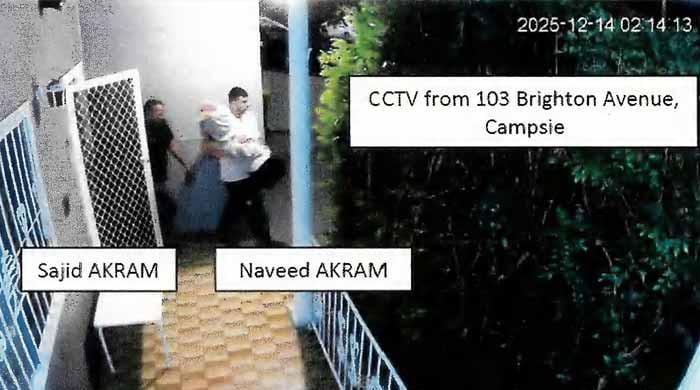Turkey's U-turn: Sweden's NATO bid gains unexpected support
Turkey's surprising support comes after year of hostility as Sweden sought NATO membership after Russia's invasion
July 11, 2023

Turkish President Recep Tayyip Erdogan has made a diplomatic decision to back Sweden's bid to join NATO, a historic turn of events.
Turkey's surprising support comes after a year of hostility as Sweden sought NATO membership in the aftermath of Russia's invasion of Ukraine.
NATO Secretary General Jens Stoltenberg acknowledged the development, saying Erdogan has agreed to submit the appropriate documents for approval to the Turkish parliament.
Erdogan and Swedish Prime Minister Ulf Kristersson achieved an agreement ahead of the NATO summit in Vilnius, Lithuania. President Joe Biden, who has been a vocal proponent of Sweden's NATO membership in the face of Russia's invasion of Ukraine, hailed the news.
In a telephonic conversation, they agreed to meet in person during the summit with Erdogan. Stoltenberg lauded the event as a "historic step," expressing optimism that Hungary, another opponent of Sweden's NATO bid, would follow suit.
Turkey initially rejected Sweden's membership because of worries over Sweden's apparent backing for Kurdish organisations designated as terrorists by the Turkish government. Efforts were made, however, to alleviate Turkey's security concerns. Sweden amended its constitution, made significant legal changes, strengthened counterterrorism collaboration with the PKK, and resumed arms transfers to Turkey. Stoltenberg emphasised that collaboration in the fight against terrorism will continue once Sweden joins NATO, and that a new bilateral security compact will be developed.
Sweden's potential membership in NATO has enormous geopolitical repercussions. Despite the fact that Sweden does not have a land border with Russia, its naval and aviation might in the Baltic Sea, paired with neighbouring NATO countries, would improve defence capabilities and repel possible threats. Former Swedish Prime Minister and Foreign Minister Carl Bildt emphasised the importance of Finland and Sweden joining NATO in expanding the alliance's political influence in Europe and the transatlantic region.
Turkey's decision is especially notable given its role as the alliance's second-largest military force since 1952. With Hungary set to follow Turkey's lead, Sweden's route to full NATO membership appears to be growing more likely.
Given Stockholm's naval and air capabilities in the Baltic Sea, analysts think that Sweden's probable participation would further restrict Russia's influence. The eight NATO member states that surround the area would work together to respond to any threats from the Kremlin.
The deal between Sweden and Turkey marks the beginning of a new chapter in Sweden's NATO ambitions and highlights the possibilities for diplomatic solutions to overcome entrenched opposition. The unanticipated Turkish assistance, along with initiatives to resolve security issues, creates a favourable precedent for Sweden's complete NATO membership.









